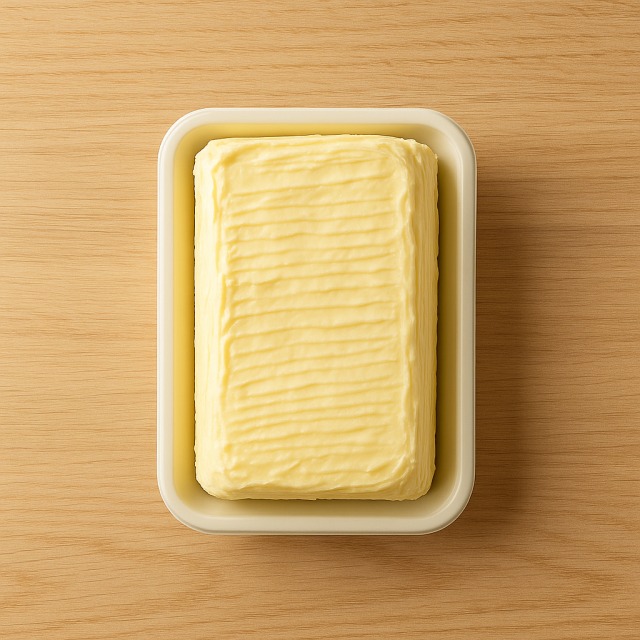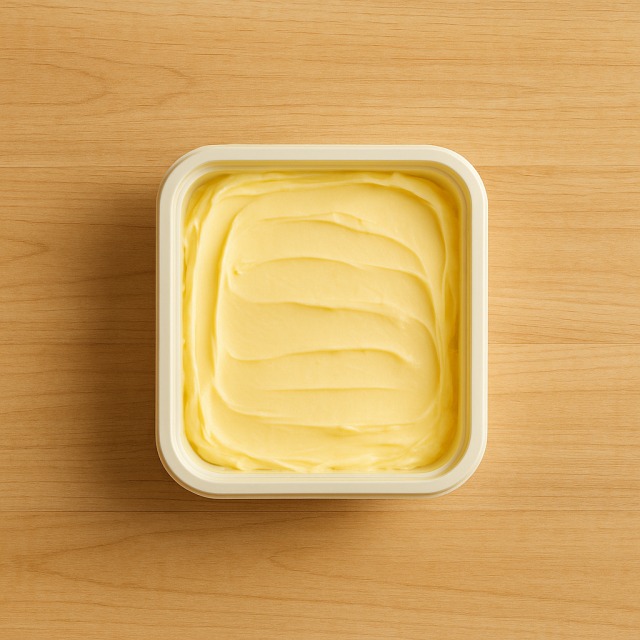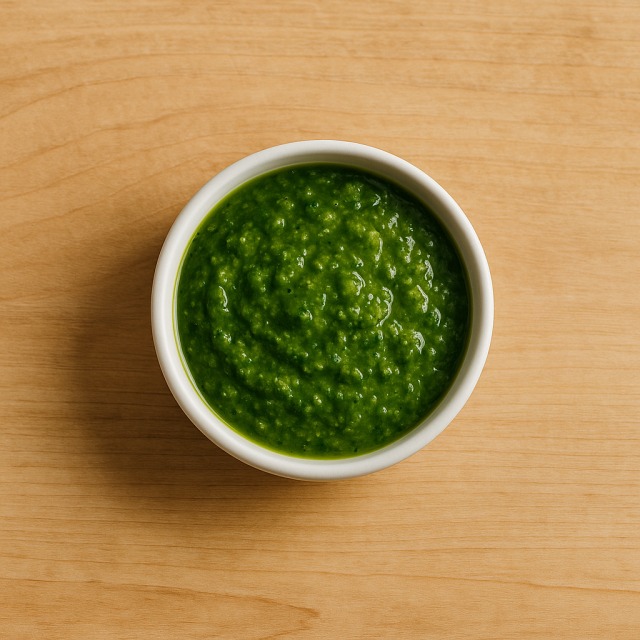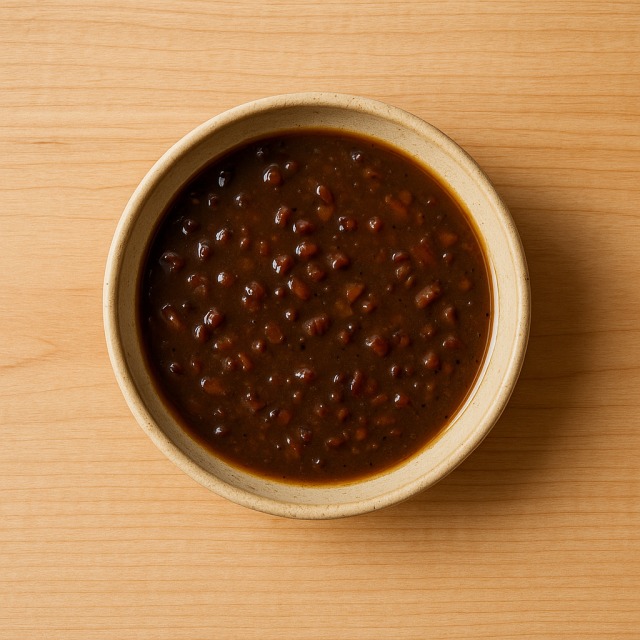Calorie Chart / Seasoning & Sauces / Margarine
How Many Calories Are in Margarine?
Calculation of the nutritional value & Recommended Dietary Intake of margarine
For g and a calorie requirement of kcal
| Calories 75 kcal | Proteins 0 g | Lipids 8.3 g | Carbohydrates 0 g |
| 4% | 0% | 12% | 0% |
Health benefits of margarine
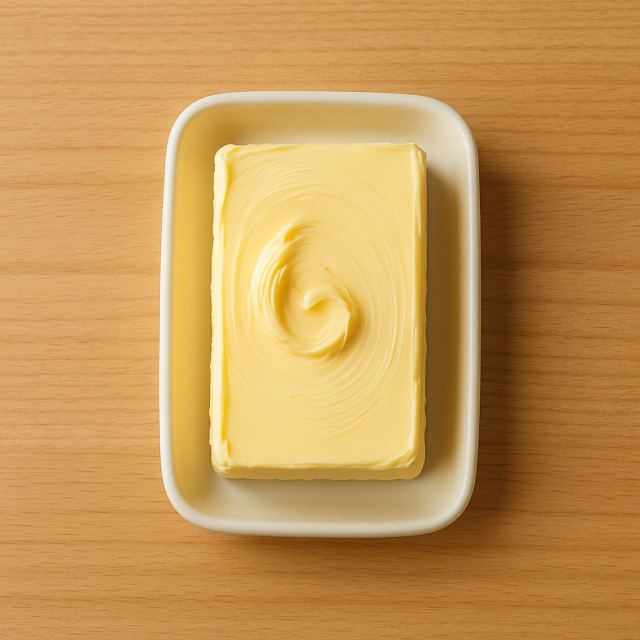
Margarine - 100g
Calories 750 kcal
Proteins 0.1 g
Lipids 83 g
Carbohydrates 0.2 g
Margarine is a high-calorie spread derived from an emulsion of vegetable oils and water. Because it packs a lot of calories in a small volume, it is often used by people who need to increase their energy intake without expanding meal size.
Most commercial margarines are enriched with vitamin A (important for vision and skin), vitamin D (essential for the immune system and bone mineralization), and vitamin E (an antioxidant). They are naturally cholesterol-free and supply unsaturated fats, including linoleic acid (omega-6) and, in some formulas, alpha-linolenic acid (omega-3), both essential for cardiovascular health.
Some "functional" margarines also contain added plant sterols that are supposed to help lower LDL cholesterol. Being made from vegetable oils, margarine is lactose-free and suitable for people who avoid dairy. It was invented in 1869 by the French chemist Hippolyte Mège-Mouriès for Napoleon III as a cheaper substitute for butter, making it a small piece of food history on your plate. Modern production methods have virtually eliminated the trans-fat issue that once tarnished its reputation, while preserving its dense calories for those who need them.
Tips for incorporating margarine into a balanced diet
Because margarine melts quickly and withstands moderate heat, use a thin swipe on a slice of wholemeal bread topped with fresh tomato and a pinch of sea salt for a simple snack that keeps calories under control yet supplies healthy fats.
For dinners, sauté seasonal greens such as asparagus in a teaspoon of margarine instead of oil; pair them with a grilled chicken breast to balance proteins and calories while limiting saturated fat.
In baking, substitute butter with equal weight margarine in cakes, cookies, or a homemade pancake batter. The result is fluffy and provides fewer saturated fats, though overall calories remain comparable—switch to light margarine if you want to shave off some calories without changing the flavor too much.
Remember that even a small knob of margarine adds noticeable calories; measure rather than "eyeball" the quantity and combine it with fiber-rich sides like broccoli or brown rice to stay satiated.
Frequently Asked Questions
- How many calories are in margarine?
- There are 750 kcal per 100 g.
- Is margarine lower in calories than butter?
- The number of calories in margarine is very similar to butter; the main difference lies in the quality of fats (more unsaturated) rather than energy content.
- Does margarine contain trans fats?
- Modern European margarines are produced with interesterification rather than partial hydrogenation, so trans-fat levels are usually below 2%. Always read the label.
- Is margarine suitable for a vegan diet?
- Most brands are plant-based and dairy-free, but check for additions like whey or vitamin D sourced from lanolin if you need a strictly vegan product.
- Can I bake a croissant with margarine?
- You can, although traditional croissants rely on butter for flavor. Replacing it with margarine keeps the calories similar but reduces saturated fat.
- Does keeping margarine at room temperature change its calories?
- No, storage temperature affects texture and shelf life only; calories stay exactly the same.
Similar foods
Information provided by Calorie Menu may contain inaccuracies or errors. It cannot, under any circumstances, substitute medical advice or medication.
